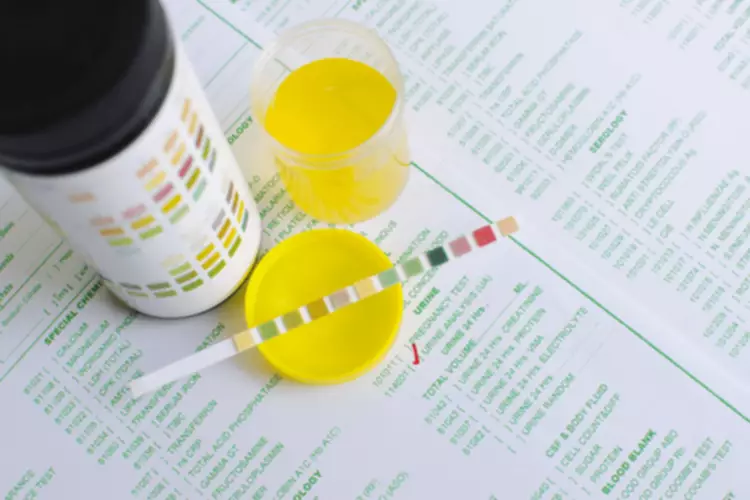Homeworks and Handouts for Clients
Content
Shame can be incapacitating and harmful to people’s physical and emotional health, self-esteem, and well-being. With the help of this CBT worksheet help clients to understand guilt, their feelings of guilt, their reasoning, and take actions that will help them to cope with guilt they feel. Shame and guilt are often used interchangeably but are in fact not the same. While guilt acknowledges negative feelings over an action taken, shame tells you that as a result of this action, you’re not a good enough person. And there’s a lot of nervous fibers centralized in the abdomen. Neuroscientists call this the gut brain, not meant to be disrespectful, it’s just what they call it.
Cognitive therapy and mind-body relaxation help break old habits and retrain neural circuits to create new, healthier ways of thinking [12,13]. Recovering from shame and self-loathing is possible. There are many steps you can follow to assist yourself to manage your feelings of shame and self-blame. Choosing supportive, validating and healthy https://ecosoberhouse.com/ personal relationships can help to bolster your confidence, and provide you with the security you need to explore and understand where your feelings of shame came from. Shame can be triggered by criticism and failures, but can also be stimulated by success, being seen, assertiveness, self care and feeling proud or happy (Fisher, 2011).
Substance Disorders EBPs
In recovery, I discovered those feelings weren’t really related to food. They were related to the inability to love and accept me. And the presence of my nagging and pesky inner critic.

1) Clients often want to put their addiction behind them and forget that they ever had an addiction. They feel they have lost part of their life to addiction and don’t want to spend the rest of their life focused on recovery. Recovering individuals tend to see setbacks as failures because they are unusually hard on themselves [9]. Setbacks can set up a vicious cycle, in which individuals see setbacks as confirming their negative view of themselves.
Stigma of Addiction
First, stress and tension are common triggers of relapse. Second, mind-body relaxation helps individuals let go of negative thinking such as dwelling on the past or worrying about the future, which are triggers for relapse. Third, mind-body relaxation is a way of being kind to oneself. The practice of self-care during mind-body relaxation translates into self-care in the rest of life. Part of creating a new life in recovery is finding time to relax. Addicts must lie about getting their drug, hiding the drug, denying the consequences, and planning their next relapse.
- Eventually, William knew he had to make a change.
- It is important to recognize and attempt to repair the damage that has led to guilt and shame, but it is also important to forgive oneself when a genuine attempt has been made to repair that damage.
In the U.S., around 6.7% of adults — 16.2 million people — live with depression. However, shame and stigma prevent many from getting diagnosed and receiving the help they need to manage their symptoms. People cope with shame and addiction in different ways.
Transdiagnostic Processes
For example, individuals work hard to achieve a goal, and when it is achieved, they want to celebrate. But as part of their all-or-nothing thinking, while they were working, they felt they didn’t deserve a reward until the job was done. Since they did not allow themselves small rewards during the work, the only reward that will suffice at the end is a big reward, which in the past has meant using. There is one benefit of self-help groups that deserves special attention. Guilt and shame are common emotions in addiction [26].
- As a group facilitator, she works collaboratively with her clients to help them focus on the action they will need to take to recognize the vision they will have for themselves.
- They can be obstacles to recovery, because individuals may feel that they have been damaged by their addiction and they don’t deserve recovery or happiness.
- One more way to reduce feelings of shame is to attempt to turn those into feelings of guilt.
- When you have guilt, you reinforce the feelings of being not okay.
And I think I spent 9% of the time feeling that way. And it was coming out of long-term addiction that got worse and worse. I personally believe that regret and we may talk later about guilt, I believe that regret and guilt are right and necessary for healing. And, by regret, what I mean is, is deep sorrow, deep sorrow for the wrongs we’ve done. The program of AA and NA talks about making amends, it means really taking to heart what we’ve done in wanting to make it right. When you’re struggling with substance abuse and addiction, you will do things you wouldn’t dream of doing sober, just to survive the day.
Cognitive Behavior Therapy CBT
Guilt is when you feel bad about something that you’ve done, or committed to doing and then didn’t. For example, maybe you feel guilty about saying unkind things to someone while you were intoxicated, or making a promise to do something and then not following through. The Mental and Emotional Health Series is a flexible curriculum designed for clients who have mild to moderate mental and emotional health challenges.
Many people struggle with feelings of guilt after eating food they labeled as “bad”. Labeling food as good or bad prevents you from actually enjoying it. With a divorce rate of around 40% in the U.S., you guilt and shame in recovery are definitely not alone, even if you feel that way. Surround yourself, literally or virtually, with others in similar situations. You can find an online support group through a site like Circles.com.
I want to quote the psychiatrist Carl Jung, he said, he was talking to me more in general, but let’s tie it into addiction. It’s not yours, but but you’re 100% responsible. And if you drop down to the the abdomen area, you’re aware of this research. More recently, in fact, the guy that’s done the research is in India, it’s Steven porges. And he’s been looking at their cranial nerves that extend down from the head down into the body, the 10th cranial nerve called the vagus nerve, it extends all the way down into into the gut area.

These are generally negative emotions that make people feel bad about themselves and can have negative consequences. That said, shame and guilt are important emotional components of leading a prosocial life. Many people spend a lot of their lives living with guilt and shame. Dealing with the emotions, thoughts, and actions related to guilt and shame leads to a more stress-free, calm, and satisfying life.
Childhood Depression: Info for Caregivers
Learn more about our levels of care and our treatment team here! If you are looking for community support, check out our alumni page for updates on sober events and gatherings or reach out to our alumni coordinator Kelly Butzer for more information. Should you act impulsively or without consulting your value
system and it results in behavior that is contrary to your values, correct the
situation as soon as you become aware of it. It can help to do a regular check
in to determine if you are acting in accordance with your values.
Now, that’s a mouthful but just think about that for a second. If I internalize societal stigma, that is if I, if I buy that, and bring that inside myself, that’s really the definition of shame. From a psychological perspective, we’ll unpack shame in much more kind of user-friendly language in a few minutes, but I thought I want to do is tie in shame and stigma right from the get-go here with Hugh cleanse.





